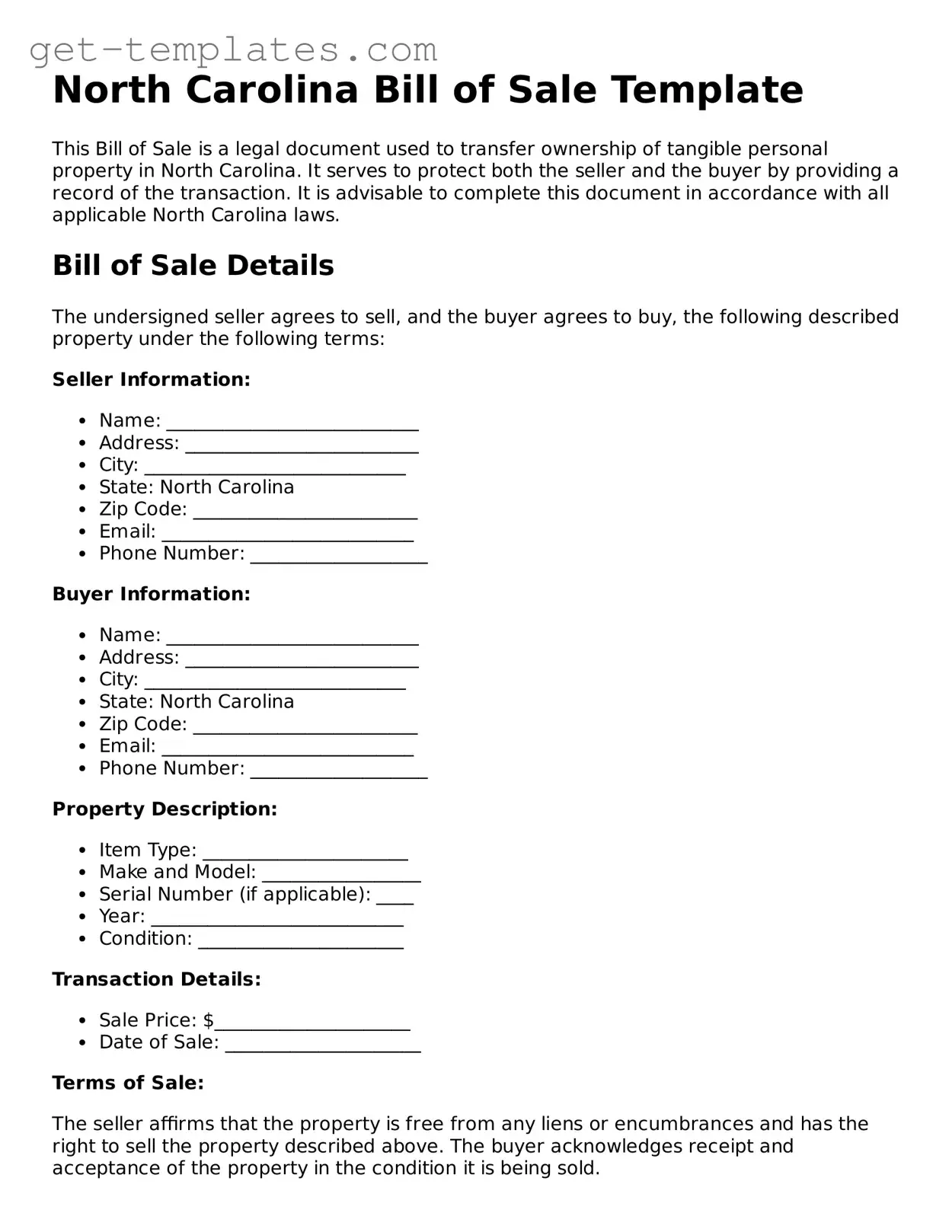What is a Bill of Sale in North Carolina?
A Bill of Sale is a legal document that serves as proof of the transfer of ownership of an item from one person to another. In North Carolina, this document is often used for transactions involving vehicles, boats, and personal property. It outlines the details of the sale, including the item description, sale price, and the names of the buyer and seller.
Why do I need a Bill of Sale?
A Bill of Sale is important for several reasons:
-
It provides a record of the transaction, which can be useful for tax purposes.
-
It protects both the buyer and seller by documenting the sale terms.
-
In case of disputes, it serves as evidence of ownership and the agreed-upon sale conditions.
When creating a Bill of Sale in North Carolina, ensure it includes the following details:
-
The full names and addresses of both the buyer and seller.
-
A detailed description of the item being sold, including make, model, year, and VIN for vehicles.
-
The sale price and payment method.
-
The date of the transaction.
-
Signatures of both parties.
Is a Bill of Sale required in North Carolina?
While a Bill of Sale is not legally required for all transactions, it is highly recommended. For vehicle sales, North Carolina law mandates that a Bill of Sale be completed and submitted to the DMV to register the vehicle in the new owner's name. It helps ensure that both parties have a clear understanding of the sale.
Can I create my own Bill of Sale?
Yes, you can create your own Bill of Sale in North Carolina. There are templates available online that you can customize to fit your needs. Just make sure that all required information is included and that both parties sign the document. Alternatively, you can consult with a legal professional to ensure that your Bill of Sale is compliant with state laws.
Do I need to notarize a Bill of Sale in North Carolina?
Notarization is not required for a Bill of Sale in North Carolina, but it can add an extra layer of protection. Having the document notarized can help verify the identities of both parties and confirm that they signed the document willingly. This can be particularly useful if any disputes arise later.
What if I lose my Bill of Sale?
If you lose your Bill of Sale, you can create a new one if you have all the necessary information. If you need to prove ownership, you may also be able to obtain a duplicate title or registration from the DMV, depending on the item in question. Always keep a copy of important documents in a safe place to avoid this issue in the future.
Can a Bill of Sale be used for gifts?
Yes, a Bill of Sale can be used for gifts, although it is less common. In this case, the document would indicate that the item is being given as a gift rather than sold. Including a statement that clarifies the nature of the transaction can help avoid confusion later on.
Where can I find a North Carolina Bill of Sale template?
You can find Bill of Sale templates online through various legal websites, state government resources, or local legal aid organizations. Many templates are free and can be easily customized to fit your specific transaction. Always ensure that the template complies with North Carolina laws before using it.

